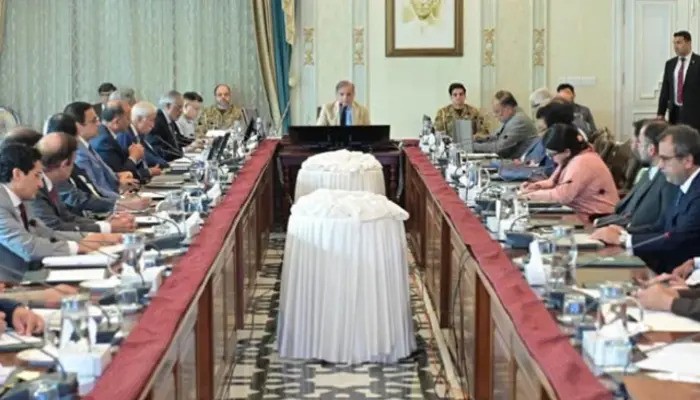
Pakistan has declared a nationwide climate emergency after devastating monsoon floods killed more than 900 people and submerged farmland across several provinces. Prime Minister Shehbaz Sharif announced the move during a federal cabinet meeting in Islamabad, warning that the floodwaters were now advancing towards Sindh.
Floods Leave Widespread Destruction
Shehbaz Sharif said the heavy rains had unleashed destruction on an unprecedented scale. Thousands of families were displaced while key crops, including wheat and cotton, suffered heavy losses. The prime minister confirmed that damage assessments were underway to determine the full impact on agriculture and food security.
“The danger is not yet over as the deluge is moving towards Sindh,” he said in his televised remarks, adding that urgent action was needed to protect vulnerable communities.
Agriculture Emergency Declared
The government formally declared both climate and agriculture emergencies. Shehbaz stressed that farming communities bore the heaviest burden of the floods and must receive immediate assistance. “Federal and provincial governments must share the responsibility of compensating the victims,” he told the cabinet.
He emphasized that Pakistan faced challenges beyond short-term relief. “Considering the climate change impacts, we must create a long-term program. These challenges cannot be overcome overnight,” he added.
Focus on National Unity
The prime minister underlined the need for joint responsibility among all regions. He called for provincial governments, including Gilgit-Baltistan and Azad Jammu and Kashmir, to coordinate closely with the federal administration.
Parliamentary Affairs Minister Dr Tariq Fazal Chaudhry echoed this view, saying, “This is a collective challenge. Cooperation from all provincial stakeholders will be essential.” He confirmed that the federal government would convene immediate meetings with provinces to align recovery and relief strategies.
Read: Karachi Rains Leave 7 Dead, Hundreds Relocated
Economic Partnerships and CPEC-II
Alongside the emergency response, Shehbaz highlighted Pakistan’s recent economic progress. He pointed to his official visit to China, where agreements worth $8.5 billion were signed at a business-to-business investment forum.
China agreed to cover 85% of the financing for projects under the second phase of the China-Pakistan Economic Corridor (CPEC-II). Agriculture would be placed at the center of this phase, linking climate resilience with economic development.
The prime minister also noted that American companies had shown interest in investing in Pakistan’s mining and mineral sector, particularly with advanced technology. “We want to strengthen our partnership with China while improving ties with the US,” he said.
Warning Against Complacency
Shehbaz Sharif cautioned his cabinet against delays in following up on agreements. “I will not allow the status quo, complacency, or the inordinate delays that have marked our history for the past seven decades,” he declared.
He stressed that the government must act with urgency, both in dealing with flood devastation and in securing long-term development opportunities.
Tribute to Armed Forces
The prime minister paid tribute to Major Adnan Aslam, who lost his life during an operation against terrorists in Khyber-Pakhtunkhwa. He condemned malicious campaigns targeting the armed forces on social media, describing them as “fitna” that must be “crushed.”
“Such repugnant attitudes towards our armed forces are intolerable,” he said firmly.
Humanitarian Response and Recovery
The federal cabinet offered prayers for the families of government officials who had recently passed away. Officials explained that the climate and agriculture emergencies were designed to strengthen Pakistan’s capacity to respond to natural disasters while supporting the farming sector that sustains millions of livelihoods.
Chaudhry told reporters that the federal government would share responsibility for recovery while expecting active participation from provincial administrations. He underlined the need for collective leadership, calling the floods a turning point for Pakistan’s approach to climate adaptation.
A Defining Challenge
The declaration of climate and agriculture emergencies signals a new phase in Pakistan’s response to climate change. With monsoon floods exposing weaknesses in infrastructure, governance, and food security, leaders are under pressure to act decisively.
Shehbaz Sharif said Pakistan’s path forward must combine emergency relief, climate resilience, and international partnerships. “We face huge challenges, but with cooperation and responsibility, we can overcome them,” he concluded.
Follow us on Instagram, YouTube, Facebook,, X and TikTok for latest updates
